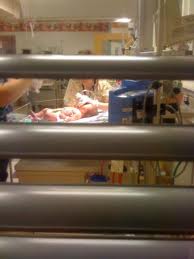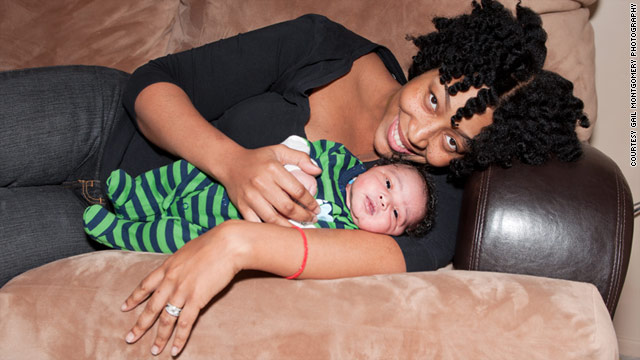November 2nd, 2011 by Peggy Polaneczky, M.D. in Health Policy, Opinion
No Comments »

 On November 8, Mississippians will be voting on ballot amendment 26 , the so called “Personhood Amendment” that if passed, would declare a fertilized egg a person.
On November 8, Mississippians will be voting on ballot amendment 26 , the so called “Personhood Amendment” that if passed, would declare a fertilized egg a person.
The question at hand is, would the Personhood Amendment be used to outlaw contraception?
Dr. Freda Bush, an Ob-Gyn and spokesperson for the Personhood amendment in Mississippi, seems to think it will not. In a press conference in support of the amendment in September, she stated this –
The personhood amendment will not ban the use of hormonal contraceptives.
The video of this press conference is being used to reassure voters about the intent of amendment 26. And yet the information Dr. Bush presents about contraception and the amendment stands in complete contrast to that which the personhood movement itself has presented. Here is the standard “talking point” on contraception from personhood sites at states across the country seeking to pass similar amendments – Read more »
*This blog post was originally published at The Blog That Ate Manhattan*
April 13th, 2011 by Linda Burke-Galloway, M.D. in News, Opinion
No Comments »

 This post is written as a follow-up to The Hijacking of Pregnant Women.
This post is written as a follow-up to The Hijacking of Pregnant Women.
It is said that sometimes you have to rock the boat in order to shift the course of progress. Well today pregnant women have reason to celebrate. The winds of change are apparent.
Bowing under pressure, K-V Pharmaceutical Company reduced the price of Makena from $1500 to $690. Makena is the trade name for hydroxyprogesterone caproate or 17OHP. It is a drug recently approved by the Federal Drug Administration (FDA) to reduce premature deliveries before 37 weeks if it is given before 21 weeks gestation. It has been used for years as an off-label drug and costs approximately $10 to $20 to make by compound pharmacists. When the FDA gave K-V an exclusive right to manufacture the drug, their integrity flew out the window. The pricing strategy of K-V is a case study of corporate greed. Most drug companies will use the “research and development” logic to explain their rationale for marking up the cost of a drug. In the case of Makena, that excuse is valid. The research and development of Makena had already been done by Squibb Pharmaceuticals who had sold the drug for years. Is it any wonder why U.S. citizens will cross geographic borders and purchase drugs from their Canadian and Mexican neighbors?
Kudos are in order to the American College of Obstetricians and Gynecologists (ACOG) who took the lead in questioning K‑V’s pricing strategies. Read more »
*This blog post was originally published at Dr. Linda Burke-Galloway*
February 3rd, 2011 by Medgadget in Health Policy, News
1 Comment »

 Most of our posts here deal with gadgets physicians or other medical professionals would use, but the New York Times has published an article about issues stemming from the patient or the family bringing cameras into the delivery room.
Most of our posts here deal with gadgets physicians or other medical professionals would use, but the New York Times has published an article about issues stemming from the patient or the family bringing cameras into the delivery room.
Now, as anyone who’s been made to watch a video of a friend’s delivery during a party can attest, this isn’t a new phenomenon. However, since almost any device can record video now and it’s easiest to share the video online, medical-legal considerations are leading some hospitals to restrict any and all recordings of live births.
We’d be interested to know what our readers think. Do you let patients film you while you work?
New York Times article: Rules on Cameras in Delivery Rooms Stir Passions…
*This blog post was originally published at Medgadget*
December 21st, 2010 by Michael Sevilla, M.D. in News, Opinion
No Comments »

 Every once I awhile a story catches my eye as I scan the news websites. There was one this morning on CNN with this catchy title: “Mom Defies Doctor, Has Baby Her Way.” The article describes a story where a mother was going to have her fourth baby. Her previous three were born via C-section. Mom did not want another C-section done, and “defied” her doctor’s order for the procedure. “You’re being irresponsible,” the patient was told.
Every once I awhile a story catches my eye as I scan the news websites. There was one this morning on CNN with this catchy title: “Mom Defies Doctor, Has Baby Her Way.” The article describes a story where a mother was going to have her fourth baby. Her previous three were born via C-section. Mom did not want another C-section done, and “defied” her doctor’s order for the procedure. “You’re being irresponsible,” the patient was told.
The middle of the article talks about the current thinking and statement of the American College of Obstetrics and Gynecology saying that “it’s reasonable to consider allowing women who’ve had two C-sections to try to have a vaginal delivery.” Of course, there’s risks with proceeding with a vaginal delivery and risks of another C-section.
What’s always interesting to me are the comments following the article. I applaud the physicians who are fighting back the anti-physician sentiment and those who are pushing (no pun intended) the only home birth agenda.
In the article, this person is being held up as a hero — as someone who defied the paternalistic medical establishment and did it her way. Good for her — or is it? What if that 0.4-0.9 percent possibility of severe complication occurred and there was a problem with mom and/or the baby? What would happen then? Read more »
*This blog post was originally published at Doctor Anonymous*
July 28th, 2010 by Davis Liu, M.D. in Better Health Network, Health Policy, News, Opinion, Research
2 Comments »

 The American College of Obstetricians and Gynecologists (ACOG) recently reiterated their position that Pap smears should be performed on healthy women starting at age 21. This is different from the past which recommended screening for cervical cancer at either three years after the time a woman became sexually active or age 21, whichever occurred first.
The American College of Obstetricians and Gynecologists (ACOG) recently reiterated their position that Pap smears should be performed on healthy women starting at age 21. This is different from the past which recommended screening for cervical cancer at either three years after the time a woman became sexually active or age 21, whichever occurred first.
How will the public respond to this change?
Over the past year there have been plenty of announcements from the medical profession regarding to the appropriateness of PSA screening for prostate cancer and the timing of mammogram screening for breast cancer. Understandably, some people may view these changes in recommendations as the rationing of American healthcare. Read more »
*This blog post was originally published at Saving Money and Surviving the Healthcare Crisis*
 On November 8, Mississippians will be voting on ballot amendment 26 , the so called “Personhood Amendment” that if passed, would declare a fertilized egg a person.
On November 8, Mississippians will be voting on ballot amendment 26 , the so called “Personhood Amendment” that if passed, would declare a fertilized egg a person.







 Every once I awhile a story catches my eye as I scan the news websites. There was one this morning on CNN with this catchy title: “
Every once I awhile a story catches my eye as I scan the news websites. There was one this morning on CNN with this catchy title: “









